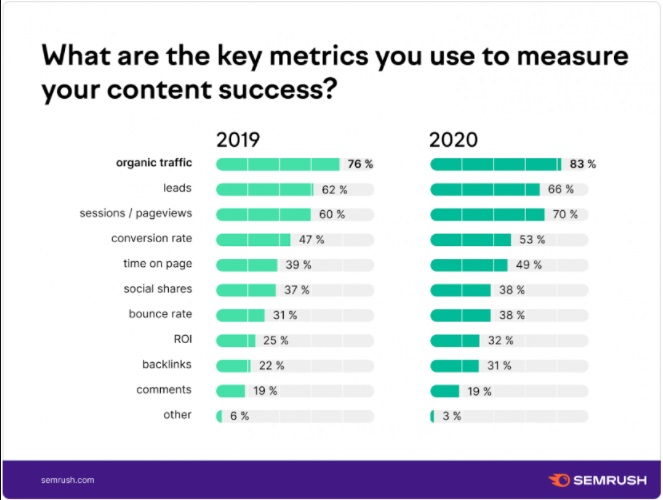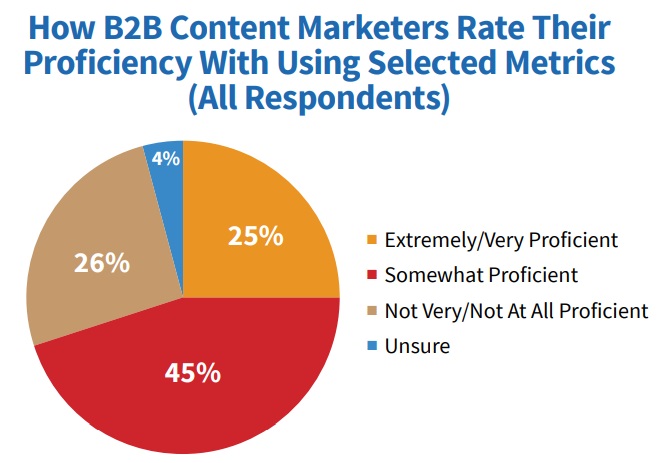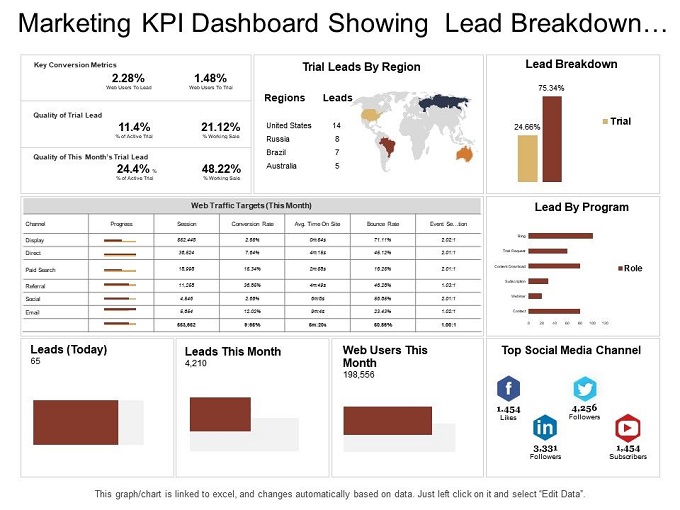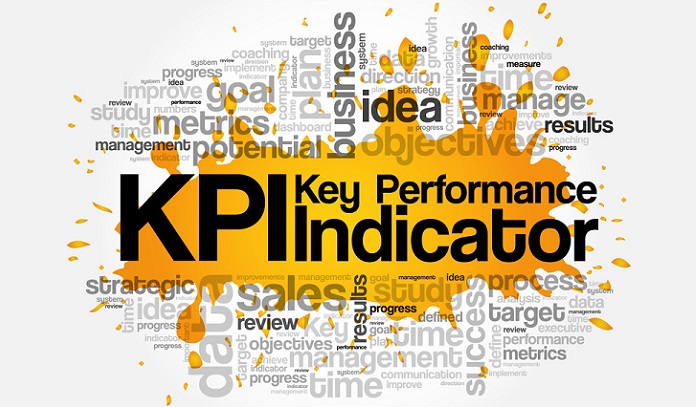Key Performance Indicators for Content Strategy
Content strategists are hired to raise digital marketing performance via content.
Many marketers, copywriters, sales people and content strategists admonish themselves about poor performance, but with out performance analytics (and a comprehensive digital marketing audit), how would improvement happen?
To prove that content strategies and tactics are working, and that content assets are worthwhile and effective, we need to build simple and more complex performance indicators (or KPIs). They’re a gauge to guide us.
As an SEO focused content strategist, I can attest to the fact that poor analytics are disempowering. And that’s even not even mentioning the new AI predictive tools (which Google AI enjoys). Even AI marketing software can’t really contribute unless it has KPIs to gauge performance and establish goals. The tools are rocketing ahead without us!
Enjoy the discussion of KPIs below and let it power up your focus on marketing that works.

Some basic kpis that content marketers monitor:

What Are KPIs?
KPIs can be described as a set of statistics drawn from our analytics solution. They’re a series of data points that help us gauge marketing performance. When combined, they provide powerful cues as to what is working to grow sales.
There is a lot of data that could be used to extract performance numbers, some simple such as traffic from Google, to more complex data such as lifetime revenue value per digital channel. It takes a lot of drilling down to find relevant and actionable data.
Good KPIs, and one’s that give insight are very valuable. To get them, you need a powerful data analytics solution and it needs to be set up correctly by an analytics expert with the right programming/technical skills. DIY isn’t wise. Stick to what you do well, and let the technical pros help you do it right.
The 2 Big Kahunas of Performance Indicators
CEOs and business owners only care about two KPIs: Revenue and Profit Growth. They’re business people and responsible for success. They want simple sales and progress reports. Everything else is your challenge.
KPIs are essential for the content strategist role, for your marketing staff and ultimately, your boss.

Content marketing KPIs help you assess whether your content and content strategy are working. If they’re not working, it may help you find the problem. Some basic KPIs may not help at all. What they measure isn’t related to the real decisions of the customer. For instance, your bounce rate may not correlate to sales revenue at all.
Of course, a lot of failure in marketing comes from: a) inadequate funding, b) lack of creative resources, c) lack of skills, d) lack of understanding of customers needs, and e) poor understanding of what is happening. Powerful analytics will help you find out what’s working and what isn’t.

Your overall KPIs will help indicate whether your overall content marketing effort is creating value and is improving. You’ll discover which content your real prospects like so you can improve it to increase velocity, engagement, intent to buy, and closing rates. All good stuff!
KPIs are All About Constant Improvement
KPIs help you see where you’re improving, and what improvements you need to make next (e.g., you’re getting traffic but not engagement and sales).
The main thing about KPIs is that they act as a reality check. It’s hard to dispute the numbers, thus forcing you to make positive changes instead of excuses. And it helps you find and delete anything that’s not working so you don’t waste time.
KPIs and analytics help you keep optimize everything until you’ve eliminated all the weak links in the customer conversion funnel. And complex KPIs help you determine what content, messages, incentives, and experiences are working so you can make them even better. It’s all about constant improvement.
That’s the value of analytics and KPIs is that you don’t know what works. You and the analytics software must learn what works and what real customers actually do want. After all, talk is cheap. Sales and revenue speak.
There’s a lot of talk/advice from content strategists that certain metrics are the end all and be all, such as traffic, engagement, and sales. These are just generalizations. The most important KPIs for your business might surprise you. You must find out which complex KPIs actually point to better sales and revenue.
Remember that KPIs also tell you whether visitors/customers like the company’s products and services, and your engagement and sales performance might not depend on your beautiful content, but simply on the real product/service the company provides. If the the company’s product UVP sucks, then improving features and benefits, will improve many of your KPIs. Visitors won’t engage if they don’t like the product or brand.
For instance, with my luxury business hotel client, conversions were disappointing the CFO, even though traffic went from 1.2 million to 2.5 million visitors per year. Management didn’t care about the KPIs because bookings and revenue weren’t glorious too. The issue was that visitors from search engines were mostly general vacation travelers looking for normal priced hotel rooms. My client’s room prices were twice the going hotel room rate and they had an upscale business brand image.
The KPIs then helped us rework content so that we captured more better targeted business travelers. Of course, when SEO is done well, you’ll get a wide swath of traffic. Content helps to filter out poorly qualified prospects so your sales team doesn’t get annoyed.
KPIs then are signposts to help you discover the problem and they help rework your content strategy. It’s all part of a learning process.
Some content marketing KPI metrics to measure are:
- monthly organic traffic
- number of leads
- bounce rate
- cost per lead
- length of sale cycle
- type of content that creates leads and sales
- hits to key marketing page content (other than blogs)
- case study/whitepaper downloads
- revenue per month
- revenue per channel
- monthly growth in revenue
- revenue per ad campaign
- revenue per search engine generated lead
- revenue per Facebook referral
- visitor content engagement
- engagement increase per content touchpoint
- engagement per referral channel
- content types experienced before sales
- conversion rate for organic leads
- conversion rate for PPC leads
- best call to action
- content pieces with highest engagement
- pages viewed per session
- top performing keywords
- number of backlinks created
- revenue per search engine keyword
- revenue per blog post viewed
- revenue per content theme/topics
- revenue from return visits
- social posts shared
- most shared content pieces on social media
- landing pages that increased revenue
- overall search engine rankings
- rankings for most important keyword phrases
- social media mentions
- email opens
- blog post titles that lead to revenue gains/sales
- the difference (in behavior) between those who engage in your content versus those who don’t
Complex KPIs can be calculated too. For instance engagement of serious visitors (minus: bounces, visits less than 1 minute, and those who viewed less than 3 pages) along with time spent on site by return visitors, tells us how we’re engaging those are really interested. What did they see, how did they progress through the content pathway, and how many contacted support or sales?
Right now, you really don’t know what in all the text, graphic, video content you have works, and what the most effective messages are. And we’re not talking about calls to action. We’re referring to the message of value that keeps visitors moving forward to purchase.
You may not have discovered the key benefits that will create your big success. But KPIs will help you identify them.
Marketing Agency | Gord Collins | Advanced SEO Strategy | Digital Marketing Audit | Mountain Bike Marketing | Best Keywords | Find Best Keywords | Marketing Companies | San Diego Marketing Agency | SEO Services | Digital Marketing Audit | SEO Software Platforms | SEO Company | Advanced SEO | Advanced SEO Consultant | Marketing Agency Los Angeles | Marketing Agency Bay Area | Marketing Performance Questions | AI Marketing Agency






